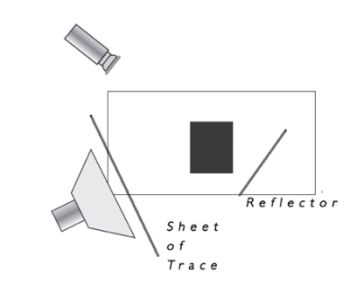articles/Business/ginandtonicmacrae-page2
Gin and Tonic for Mr MacRae please! - part 2 of 1 2 3 4 5
Published

The shot has been re-touched to remove the water from the background, and the highlights have been removed from the neck of the bottle. The label has been worked, the general exposure has been lightened and the contrast increased. Finally unsharp masking has been applied. The unworked shot is shown on the next page.
Surviving the trip to the printer
So you have created a masterpiece of lighting and form; how do you ensure that it gets out onto the printed page looking something like the original scene/set/product!
Sending files for print from a commercial shoot can be a problematic business. The route to press may take a number of forms but the most likely workflow will look something like this:
Photographer > Graphic Designer > Proofing > Proof Approval > Preflight > RIP to plate or press > Print
This sounds straightforward but here are some notes and thoughts:
1. Everybody to the right of the photographer blames the photographer if the colours are unexpected or poor.
2. The quality of personnel anywhere along the chain may be suspect. One duffer and the job may be compromised, two duffers and disaster is a near certainty!
3. These days, progress along the arrows is often conducted via the internet and so the only person who knows what the original set looked like is the photographer. This will not stop everybody along the line thinking they know!
4. The photographer is the only person looking at the object/scene in question, everybody else is looking at some computer's cobbled up idea of how things should look. The exception is the pressman who is trying to convince everybody that the colours are as good as they get, so he can go home to his mistress, partner, wife or kids (delete as appropriate).
Stack the odds in your favour
Pass4press
As the photographer you should have read the pass4press and pic4press documents ahead of everything else. Just telling the client that you have worked to pic4press protocols will scare most of them into submission as they will be unwilling to ask you what pic4press means. Either way if you have worked to pic4press standards you are well on the way to creating good, usable files which will make your life easier at every turn.
Work calibrated
If you have control of the shoot use a Macbeth Chart so that you know where your colour balance is, rather than hoping or guessing! If you wish to move away from a neutral colour balance as an artistic ploy do so using a calibrated monitor or a reliable paper proof. If colour balance adjustments are mae by the graphic designer and then it comes out wrong, everybody still tries to finger the photographer so it pays to know exactly how far you moved the colour balance and why. A calibrated proof also acts as a point of reference in case of dispute. For product shots involving garments you change the colours at your peril!
Please Note:
There is more than one page for this Article.
You are currently on page 2
- Gin and Tonic for Mr MacRae please! page 1
- Gin and Tonic for Mr MacRae please! page 2
- Gin and Tonic for Mr MacRae please! page 3
- Gin and Tonic for Mr MacRae please! page 4
- Gin and Tonic for Mr MacRae please! page 5
1st Published
last update 09/12/2022 14:54:44
More Business Articles
There are 0 days to get ready for The Society of Photographers Convention and Trade Show at The Novotel London West, Hammersmith ...
which starts on Wednesday 15th January 2025




